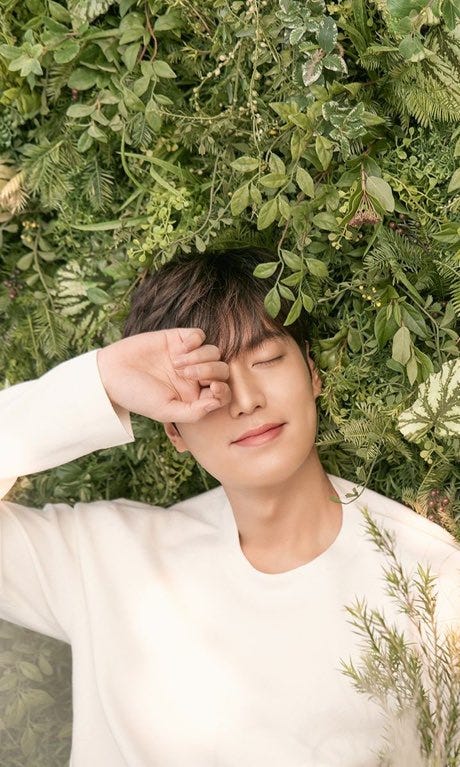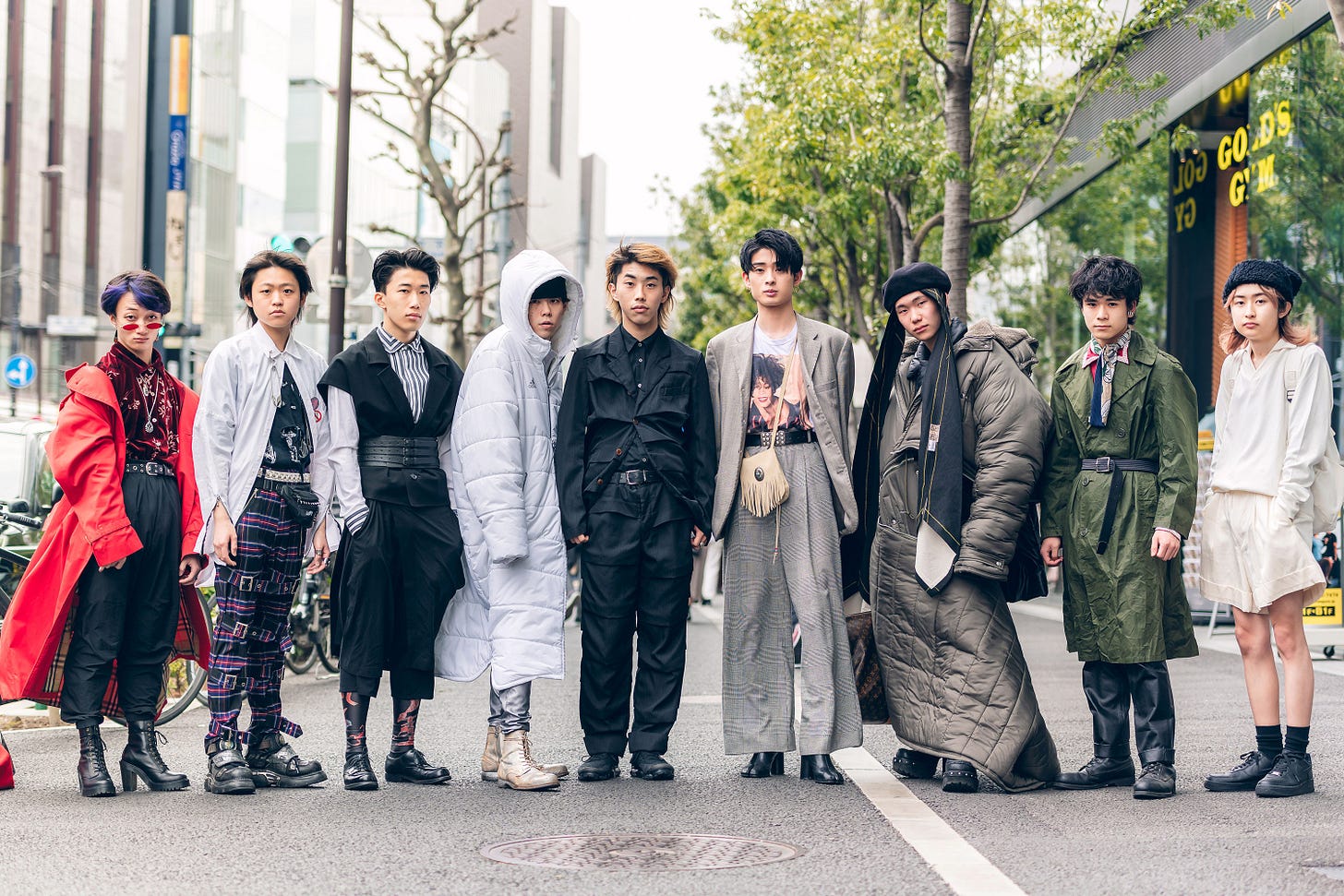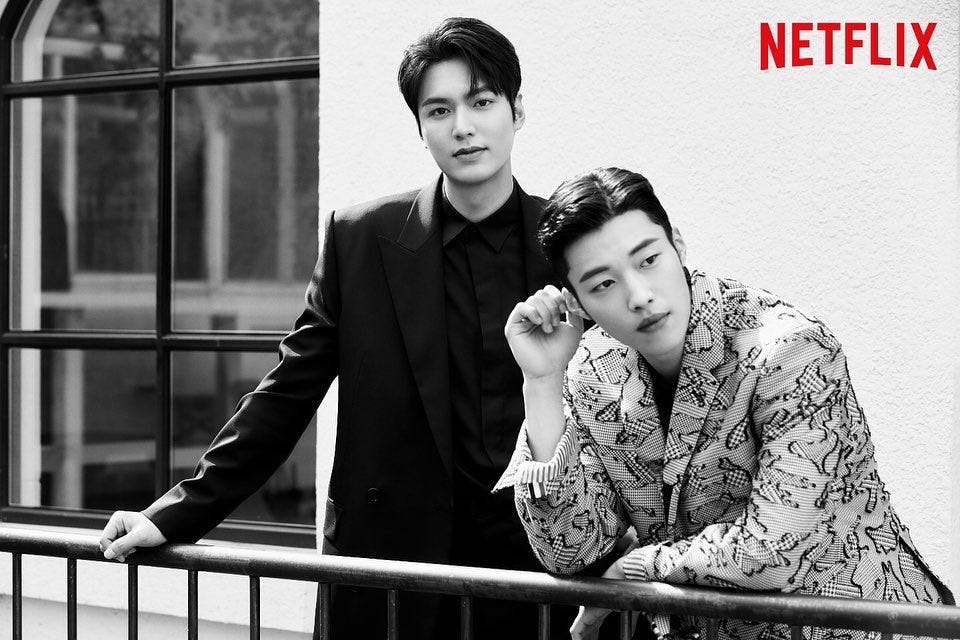The Korean Wave On Nigeria's Shores
K Dramas are gaining fans among female viewers in Nigeria but this is not the first time an Asian country is making a mark on a Nigerian audience.
On June 22, 2020, the name Lee Min-Ho was trending on Twitter NG which is sort of rare because the only Asian name that usually trends on this side of Jack’s algorithm is the rock star, martial arts-movie legend Jackie Chan, who has been the victim of countless death rumours on the bird app.


Lee Min-Ho is a South Korean star actor and he was trending because a subset of Nigerian ladies were wishing him a happy birthday.
Min-Ho stars in a TV series called ‘The King: Eternal Monarch’, the latest hit product from the cultural phenomenon known as the ‘Korean Wave’.
The ‘Korean Wave’ or ‘Hallyu’ in Chinese “refers to the global popularity of South Korea’s cultural economy exporting pop culture, entertainment, music, TV dramas and movies.”
Korean Wave has witnessed phenomenal growth over the last few years. Have you ever heard of Bangtan Sonyeondan or the Bangtan Boys normally known as BTS? They are perhaps the biggest exports of the Korean wave.

The 7-man group who look like mannequins boast of record sales only Drake can best. BTS is the undisputed biggest boy band in the world. They had teenage girls on the Ellen Degeneres Show screaming.
And yes there was that guy PSY with the earworm global smash ‘Oppa Gangnam Style’ in 2012.
While K-Pop is the darling of global music executives trying to get their hands on a piece of the Korean music pie, Korean dramas are having a go at it also.
Korean dramas, popularly referred to as ‘K Dramas’, in case you don’t know, have found a sizable audience (mostly female) in Nigeria.
It is pretty much common to see popular titles such as ‘The Heirs’, ‘Crash Landing On You’, ‘Her Private Life’, ‘What's Wrong with Secretary Kim?’ and others on Twitter.
There are even Korean drama Facebook groups for Nigerian enthusiasts.
I first encountered Korean dramas not on any streaming platform but from good ol’ Alaba.
Circa 2014, a teenage neighbour always had her eyes fixed on the TV watching Asians in epic story lines. Beside her was a healthy stack of Korean DVDs, the 7-in-1 collections, she planned to binge watch throughout the day.
Now K Dramas have gone beyond Alaba with streaming services such as Netflix offering a healthy dose of them.
Curious to know what this new wave is about, I reached out to an acquaintance of mine who is a plug in these things. After she gave me a healthy list of dramas to watch, I decided to check out The King: Eternal Monarch.
This is the show’s official synopsis;
“A modern-day Korean emperor passes through a mysterious portal and into a parallel world, where he encounters a feisty police detective.”
The first thing I noticed about the show is how all the actors look like mannequins. They look perfect. Even a strand of hair is not out of place. It seems they were created in a lab by a scientist hellbent on creating prototypes of perfect human beings.

You don’t have to watch the entire series to know why some Nigerian women are head over heels over this show. It is visually appealing. There is a lot of eye candy for the female retinas to feast on.
“The men are good looking, and they have the ability to stir emotion. The first one I watched, after doing hard guy I won’t cry, by the fourth episode I was weeping” admits Fade who jumped into the Korean Wave by watching a Taiwanese series called ‘Autumn's Concerto’.
And herein likes the hook of K Dramas, men who look perfect but are conflicted, not scared to show emotions, and not male characters that pander excessively to a PC quota from TV executives trying to please every target market.
“They aren't afraid to show men with emotions and it seems like it is so normal. The male characters are a turn on.” says Sandra, a bank executive who is hooked on Korean TV series.
“They have so many issues and when they unravel they cry. They go through the motions. They are able to tug your heart with the story. It's so attractive to watch. Then they are able to go all out with romance” she further says about the male characters.
Emotive leading men are a strong trope in K Dramas. Fresh storytelling is another one too, but there are other factors that play crucial roles in making these dramas as successful as they are.
“K Dramas deliver in terms of well thought out sets, wardrobes, editing and writing” says Fade.
These are the other calling cards of K Dramas - fashion, music, food, strong cultural representation and clean cinematography.
Asia is the new fashion capital of the world which is why characters in Korean TV series would look good on any runway in the world.
Add all these ingredients, and what you get are dramas that are aesthetically addictive that transport you to an alternate world of escapism and fantasy.

This is not the first time an Asian country would find a footing in Nigeria with its TV or film offerings.
After Nigeria’s independence, a lot of movies from India, China and Japan became popular in the country and were regularly shown in Pen Cinema or Casino Cinema in Lagos.
Indian movies were the most popular however.
During the 1950s, Lebanese merchants bought the rights to show Bollywood movies in the country. Films like ‘Dus Numbri’, 'The Burning Train’, ‘Mard’ were essential viewing for Nigerian households and a rite of passage for kids who grew up in the 80s and early 90s.
After this wave, came the Chinese Wave spearheaded by martial artists turned movie stars Bruce Lee and Jackie Chan. The latter would become a household name in the country thanks to some of his movies like ‘Police Story’, ‘Armour of God 1&2’, ‘Drunken Master’ and others.
Even movies like ‘The Big Boss’, and ‘Enter The Dragon’ have cult-like followings among Bruce Lee fans in the country.
A fun fact, the great Lemi Ghariowku was introduced to Fela based on his impressive drawing of Bruce Lee.
Broadcasting in Nigeria was deregulated in 1992 and with that came B Movies from China. I remember Clapperboard TV, the first private TV station, showed Chinese crime movies at night.
Sometime during this period, the VHS copies of the classic Hong Kong thriller ‘Killer’ starring Chow Yun-Fat and directed by John Woo landed in various video clubs across the country. The body count (149), gunplay and violence made these copies travel from one VHS player to another in uncountable homes.
Other flicks such as ‘Winners and Sinners’, ‘Above The Law 1 & 2’, (the ones starring Cynthia Rothrock and not Steven Seagal), ‘7 Lucky Kids’ etc were popular too.
These Asian flicks more or less were the go-to movies to watch on weekends and public holidays.
With the rise of Nollywood in the late 90s, and the excessive nature of martial acts flicks led by its new leading star Jet Li, Asian movies in Nigerian slowly went out of fashion.
Their unpopularity only gave way to a new genre embraced by Nigerian youths - anime from Japan.
Technically, the history of anime in Nigeria starts with the cartoon ‘Voltron: The Defender of the Universe’ (which was the English dubbed and re-edited version of the darker anime called ‘Beast King GoLion’) shown by NTA 2 Channel 5 in the late 80s to mid 90s.
Then came TV Africa circa 2000, that properly laid the grounds for an anime sub-culture to grow with the daily airing (except on weekends) of ‘Samurai X’.
This would lead to an amine sub-culture that will blossom in the country circa 2006 with friends swapping the latest episodes of bestselling titles like ‘Naruto’ and ‘Bleach’. Till today, there is still a strong anime sub-culture in Nigeria.
And can we forget ‘Shaolin Soccer’, and ‘Kung-Fu Hustle’, the over-the-top, comical movies, that were bootleg hits.
So here we are in 2020 and Korean dramas are the wave. They are softer in tone than John Woo movies and not adrenaline pumped like Jackie Chan adventures. They are focused on producing glamour on steroids, think ‘Crazy Rich Asians’, even though it was Hollywood financed.
For all the sunshine and rainbows in Korean dramas, some Nigerian women can’t be bothered. “The expression of emotions is too plastic for me” says my 234 Essential podcast co-host Ugochi.
Some other women are just stuck on South American/Mexican telenovelas (which have been a mainstay of Nigeria’s TV industry since NTA aired ‘The Rich Also Cry’ in the early 90s) and Zee World Indian soap operas.
For me I like the dark and grittier content which Korea also offers.
I was spellbound watching ‘Parasite’, the Korean film that became an international success and became the first foreign film to win the ‘Best Picture’ category at the last Oscars.
That’s more my cup of tea or should I say bowl of ramen. However, there is still something inherently Korean about it - the infusion of culture, outstanding cinematography, food and a bold, fresh storyline.
K Dramas open up a new world and offer a different new point-of-view. It might be a tough ride at the beginning but once you are in sync with the flow, you will be riding the wave in no time.
읽어 주셔서 감사합니다
That’s “thanks for reading” in Korean.




